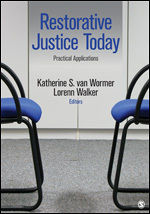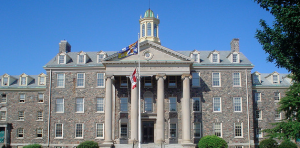News & Announcements
- Details
- Written by Laura Mirsky
Opinion: The mounting cost of violence - Rep. Mike Honda - POLITICO.com.
From the Wisconsin shooting to the war in Afghanistan, we all know that violence costs our society, whether it’s domestic violence, a homicide, a war, or something as simple as a security system. We also know that there are direct and indirect costs associated with violence, whether it’s the immediate medical, court and police costs that stem from violent crime, or the long-term loss of economic productivity that stems from the loss of an American worker’s life.
- Details
- Written by Joshua Wachtel
 Amy Merickel, a mother of a San Francisco school child, discovers the power of restorative practices when she volunteers as a recess monitor. She describes her experience in this podcast from KQED radio.
Amy Merickel, a mother of a San Francisco school child, discovers the power of restorative practices when she volunteers as a recess monitor. She describes her experience in this podcast from KQED radio.
I like where she says:
"It's [restorative practices] a framework for community building and conflict resolution, and is predicated on high expectations with high support to meet them. In education, Restorative Practices emphasizes building trusting relationships and learning from conflict. It helps put the kibosh on bullying."
The full text of her piece can be found here.
IIRP's involvement with San Francisco schools' implementation of restorative practices and other news about the impact RP is having on schools and in the city can be found here.
- Details
- Written by Joshua Wachtel
 A chapter about restorative practices in higher education by IIRP President Ted Wachtel and University of Vermont director of residential life Stacey Miller has been published in a new book called Restorative Justice Today: Practical Applications, edited by Katherine S. van Wormer (University of Northern Iowa) and Lorenn Walker (University of Hawaii Honolulu Community College).
A chapter about restorative practices in higher education by IIRP President Ted Wachtel and University of Vermont director of residential life Stacey Miller has been published in a new book called Restorative Justice Today: Practical Applications, edited by Katherine S. van Wormer (University of Northern Iowa) and Lorenn Walker (University of Hawaii Honolulu Community College).
The book also includes a section on traditional North American native restorative justice philosophy and practice by Laura Mirsky, IIRP assistant director of communications and technology.
- Details
- Written by Joshua Wachtel
Sunday videos continue with this piece from the Dignity in Schools Campaign to mark their Annual National Week of Action on School Pushout going on now – September 29 to October 6, 2012.
To find out how to get involved in the Week of Action, click here.
- Details
- Written by Joshua Wachtel
Christian Science Monitor has published an opinion piece by IIRP President Ted Wachtel about the growing trend for schools to move away from failed zero tolerance policies. He also discusses the role restorative can play in this transition. The piece begins:
- Details
- Written by Joshua Wachtel
 The ACSA (Association for Student Conduct Administration), which serves higher education student conduct adminstrators, is offering a webinar titled "Introduction to Restorative Justice" on October 24, 2012 from 2:00 to 3:30 PM Eastern Time. John Bailie, IIRP director of professional development, will be one of three speakers. In addition to the general topic, Bailie will specifically discuss IIRP's Building Campus Community program. In addition to responding to harm, this program provides a framework for residential life staff to proactively build community in residence halls.
The ACSA (Association for Student Conduct Administration), which serves higher education student conduct adminstrators, is offering a webinar titled "Introduction to Restorative Justice" on October 24, 2012 from 2:00 to 3:30 PM Eastern Time. John Bailie, IIRP director of professional development, will be one of three speakers. In addition to the general topic, Bailie will specifically discuss IIRP's Building Campus Community program. In addition to responding to harm, this program provides a framework for residential life staff to proactively build community in residence halls.
To learn more and register for the webinar, click here.
- Details
- Written by Joshua Wachtel
Today's excerpt is from Julia Steiny writing at EdWeek and also on her blog. She says there is no evidence that punitive measures work to change students' behavior. But restorative justice does work. The piece is presented as an open letter to President Obama. The full link appears below.
No research shows that suspensions teach kids the social skills they need to keep them  from getting tossed out of school in the first place. None. Suspensions label a kid “bad,” which often becomes a self-fulfilling prophecy, even a badge of honor. Students who already experience failure at school welcome a few days’ vacation on the couch with a TV.
from getting tossed out of school in the first place. None. Suspensions label a kid “bad,” which often becomes a self-fulfilling prophecy, even a badge of honor. Students who already experience failure at school welcome a few days’ vacation on the couch with a TV.
But! Beastly behavior in class ruins teaching and learning. When feral or entitled children clown around, start fights or lash out at teachers with impunity, everyone suffers. Teachers and parents of the so-called “good” kids feel that removing the disruptor is the only real weapon they have against chaos.
- Details
- Written by Joshua Wachtel
Here are two clippings this week relevant to current trends of schools using restorative justice to move away from zero tolerance policies and address the disproportionate punishing of minority students. First from Denver, Colorado, then from California:
There were 185 expulsions in 2009-2010 compared to 63 last year, said John Simmons, executive director of student services for the district. Meanwhile, the number of out-of-school suspensions has declined in that same period from 9,558 to 7,525 last year.
Fifty-five percent of students suspended from school last year were Hispanic, which is close to the 58 percent of Hispanic students who attend school in the district.
The big gap is between white and black students. White students make up 20 percent of DPS students but only 8 percent of those suspended. Conversely, black students make up only 15 percent of district students but comprised 32 percent of those who faced out-of-school suspensions last year.
- Details
- Written by Joshua Wachtel
 I'm continuing the Sunday videos series with the full plenary talk given by Dr. Stacey Miller, director of residential life at the University of Vermont at IIRP's 15th World Conference. Her 33 minute talk is well worth the time. It's not only highly informative, but also funny and lively, and provides a lot of clues about the type of leadership that is required to implement restorative practices not only at the university level, but also in schools, workplaces and other institutions. The talk is loaded with anecdotes and practical examples.
I'm continuing the Sunday videos series with the full plenary talk given by Dr. Stacey Miller, director of residential life at the University of Vermont at IIRP's 15th World Conference. Her 33 minute talk is well worth the time. It's not only highly informative, but also funny and lively, and provides a lot of clues about the type of leadership that is required to implement restorative practices not only at the university level, but also in schools, workplaces and other institutions. The talk is loaded with anecdotes and practical examples.
- Details
- Written by Joshua Wachtel
 Photo by Duane Brown at Flickr Creative Commons
Photo by Duane Brown at Flickr Creative Commons
The following story was posted at CBC News Nova Scotia, about a restorative justice program set up at Dalhousie University. IIRP hosted its 14th World Conference in 2011 in Nova Scotia in cooperation with Nova Scotia Restorative Justice Community University Research Alliance (NSRJ-CURA). NSRJ-CURA director Jennifer Llewellyn, and a number of other participants at the conference, are also professors at Dalhousie University.
Dalhousie University students who end up in trouble with the law now have a way to try to right the wrong without having to go to court.

Restorative Works Year in Review 2024 (PDF)
All our donors are acknowledged annually in Restorative Works.
